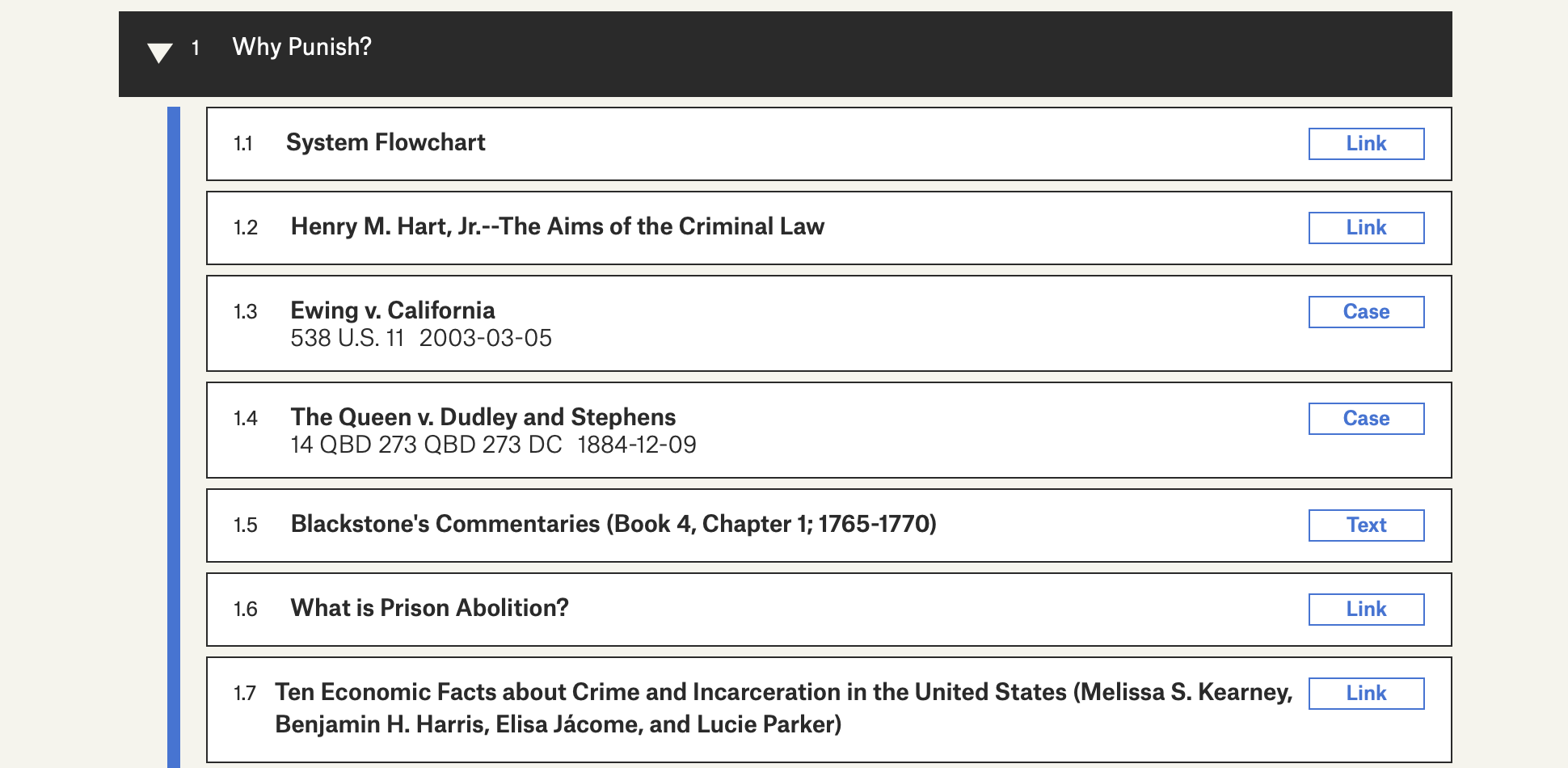SCU law professors advocate for open, innovative teaching methods
In February, professors David Ball, Michelle Oberman, and Mike Flynn at Santa Clara Law School organized a conference to build momentum for open and innovative ways of teaching law. Nearly one hundred faculty members, librarians, OER advocates, and others gathered to hear from the organizers about their experience creating an open casebook, and to talk about how to expand the community around open educational resources for law.
In the summer of 2020, Ball, Oberman, and Flynn used the H2O open casebook platform to collaborate with each other and with their students to create a new criminal law casebook. Leveraging the open licensed resources that were already available in the H2O catalog, the professors took sections of existing books by Harvard Law professor Jeannie Suk Gersen and Columbia Law professor Tim Wu to build the foundation of their book. They then worked with their students to add in new elements including targeted sections, tailored introductions, student reflections, and news articles and podcasts. In the end they had created their own unique book to add to the criminal law canon, along with a supplementary volume of related materials. Oberman described the process of building the book as her “favorite teaching experience to date.”

During the conference, Ball, Oberman, and Flynn emphasized the potential to build open teaching resources that better reflect the constant evolution of legal theory and practice. According to Ball, “the law itself is not a natural, revealed set of standards. It is collaborative. It is societal. It only has shape and force in relational contexts.” The law continues to be negotiated and to change - whether through new precedents, current events that challenge “settled” law, or activist movements - while published casebooks quickly become outdated.
By interspersing caselaw with up-to-date digital resources, H2O allowed the professors to reflect that evolution in their teaching materials and practice in real time. Inviting their students to become authors alongside them gave students more ownership and agency in developing their own conceptions of the law. And the ability for Ball, Oberman, and Flynn to create their own narratives in their book allowed them to introduce concepts in a way that better reflected their own teaching style. “Rather than starting the semester with the classic case about cannibalism,” said Oberman, “I used an ongoing prosecution for murder of a woman who miscarried while addicted to methamphetamine, which permitted us to begin the semester with a meaningful discussion about the purposes of prosecution. As important, I was able to flag issues of criminalizing drugs, mass incarceration, and more, all in the first class.”
In addition to giving students a better educational experience, open casebooks have an immediate impact on student equity and well being. Students spend thousands of dollars on casebooks by the time they finish law school, despite the fact that the actual caselaw the books contain is completely free and in the public domain. Ball shared that he knows some of his students struggle with food insecurity and that COVID exacerbated their financial burden with the loss of summer employment opportunities. The challenges of this past year were part of what motivated the professors to find free alternatives to their traditional casebooks. Flynn added, “as teachers, we cannot control the exponential increase in tuition and living expenses. We can control the cost of the books we assign.”
View their casebook and supplementary volume in H2O.